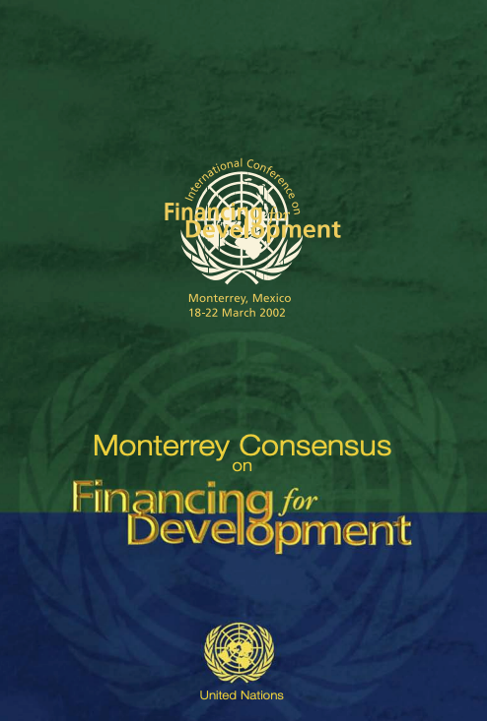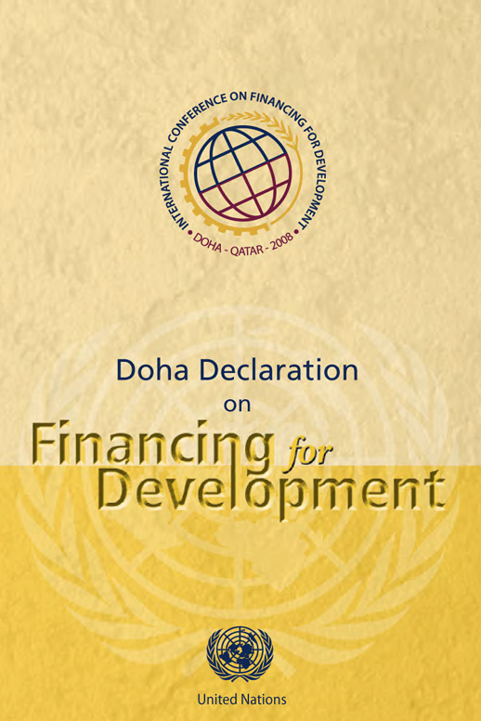History of FFD Conferences
The Financing for Development (FFD) process at the United Nations is centered around supporting the follow-up to the agreements and commitments of the three International Conferences on Financing for Development: in Monterrey, Mexico in 2002; in Doha, Qatar in 2008; and in Addis Ababa, Ethiopia in 2015. The FFD process has evolved with each conference and agreement, building on and updating the previous ones to address current global financial needs and development challenges. This page outlines the milestones and progress made in the FFD process from the Monterrey Consensus (2002) to the Doha Declaration (2008) and the Addis Ababa Action Agenda (2015).
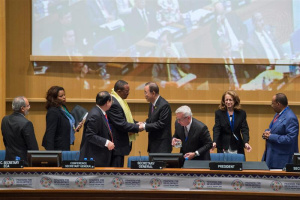
3rd International Conference on Financing for Development (Addis Ababa, 2015)
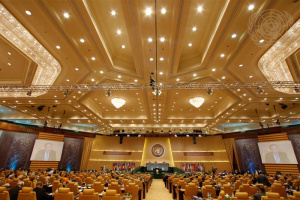
2nd International Conference on Financing for Development (Doha, 2008)

1st International Conference on Financing for Development (Monterrey, 2002)
International Conference on Financing for Development (2002)
The International Conference on Financing for Development held in Monterrey, Mexico, in 2002, marked the beginning of the FFD process at the United Nations. It brought together leaders from around the world to explore innovative approaches for mobilizing resources and the international community around the collective challenge of supporting global development, with a particular focus on the needs and priorities of developing countries.
Framed by mounting debt challenges in emerging markets and the adoption of the Millennium Development Goals (MDGs), the Conference signaled a turning point in the approach to development cooperation by the international community. More than 50 Heads of State and Government and over 200 ministers of foreign affairs, trade, development and finance gathered in Monterrey, successfully elevating financing for development as a central issue on the global agenda.
The Monterrey Consensus reflected a landmark global agreement between developed and developing countries, in which both recognized their responsibilities in areas such as trade, aid, debt relief and institution building. Key outcomes included:
- Increased Official Development Assistance (ODA): Commitments to increase aid to developing countries.
- Aid Effectiveness: Raising concerns on aid effectiveness, prompting subsequent high-level forums and the Paris Declaration on Aid Effectiveness.
- Governance Reform: The provision of political impetus for launching negotiations on IMF governance reform, which paved the way for changes in 2006 and 2008.
- Innovative Financing: Discussions that fostered the creation and adoption of innovative financial instruments to leverage financing for development.
Read: Monterrey Consensus of the International Conference on Financing for Development, 2002
Follow-up International Conference on Financing for Development to Review the Implementation of the Monterrey Consensus (2008)
The Follow-up International Conference on Financing for Development held in Doha, Qatar, in 2008, was convened amid the challenging and complex global environment of the 2008 global financial crisis. The Doha Declaration on Financing for Development reaffirmed the Monterrey Consensus and added new understandings to the global agreements on financing, including:
- Gender: Agreement that gender considerations are essential in all financing policies.
- Environment: The integration of environmental considerations into financing discussions, underscoring the emerging need for climate finance and laying the groundwork for the establishment of the Green Climate Fund in 2010.
The Conference culminated in the adoption of the Doha Declaration on Financing for Development by consensus. The Declaration emphasized the need for coordinated and coherent action in responding to the crisis, as well as in formulating national development strategies that reflect the interests of developing countries. Additionally, it was recognized that a stable and equitable economic system requires the reform of all international economic institutions and standard-setting bodies to ensure adequate representation of developing countries.
Read: Doha Declaration on Financing for Development, 2008
3rd International Conference on Financing for Development: Addis Ababa Action Agenda (2015)
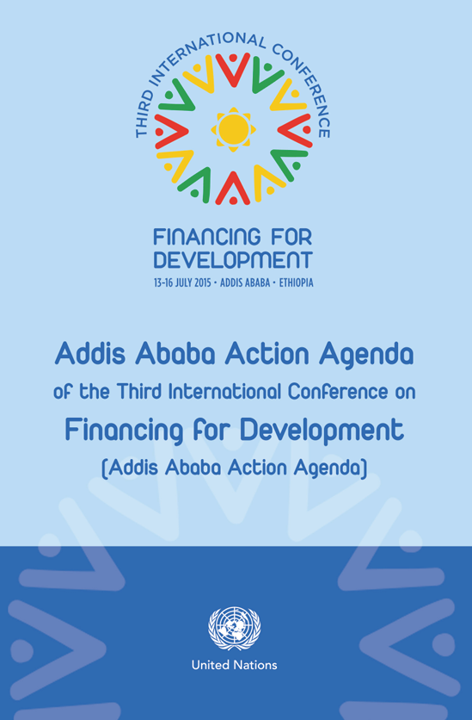 Held in parallel with the finalization of the Sustainable Development Goals (SDGs), the Third International Conference on Financing for Development held in Addis Ababa, Ethiopia, in 2015, reflected a two-decade evolution in the global understanding of sustainable development, fully integrating economic, social, and environmental dimensions into the financing considerations.
Held in parallel with the finalization of the Sustainable Development Goals (SDGs), the Third International Conference on Financing for Development held in Addis Ababa, Ethiopia, in 2015, reflected a two-decade evolution in the global understanding of sustainable development, fully integrating economic, social, and environmental dimensions into the financing considerations.
The Addis Ababa Action Agenda introduced a new financing framework for sustainable development, which included several key elements:
- Role of Public Development Banks: Emphasis on the importance of development banks and their role in sustainable development, launching efforts that led to the creation of the Finance in Common network of over 500 public development banks.
- Integrated National Financing Frameworks (INFFs): The introduction of the concept of INFFs, which are now being developed by more than 80 countries to guide financing for their national sustainable development priorities.
- Technology Bank for Least Developed Countries: Political impetus to the agreement on the establishment of the Technology Bank for Least Developed Countries.
- UN Expert Tax Committee: Strengthening the work of the UN on taxation by enhancing the UN Committee of Experts on International Cooperation in Tax Matters, thus laying the groundwork for a UN Framework Convention on International Tax Cooperation.
- Stronger Follow-up Process: Enhancing mechanisms for monitoring and follow-up, including the annual ECOSOC Forum on Financing for Development (FfD Forum) and the Inter-agency Task Force (IATF).
The Addis Ababa Action Agenda marked a significant step forward in the global effort to financing for sustainable development, setting the stage for future initiatives and reinforcing the 2030 Agenda commitment to achieving the Sustainable Development Goals.
 Welcome to the United Nations
Welcome to the United Nations 

